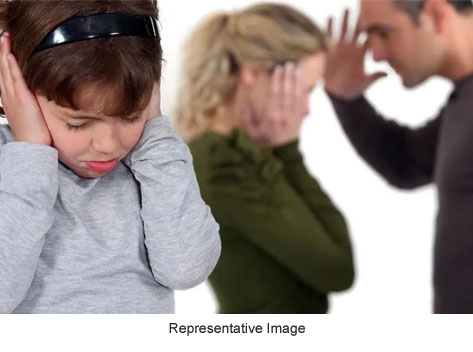The Lasting Impact of Violence, Fights, and Divorce on Children: Understanding the Emotional and Behavioral Consequences
Violence at home, fights between parents, and divorce can have profound and long-lasting effects on children. Children who grow up in households where violence is present or witnessed are at an increased risk of suffering from emotional, behavioral, and cognitive problems. Children who experience or witness violence may develop anxiety, depression, and post-traumatic stress disorder (PTSD). These children may also have difficulty forming healthy relationships later in life.

Similarly, children who grow up in households where parents fight frequently may feel overwhelmed, scared, and confused. They may experience low self-esteem, insecurity, and have trouble trusting others. Children who witness fights between their parents may also become hyper-vigilant and anxious, always on the lookout for signs of danger.
The impact of divorce on children can also be significant. Children may experience a range of emotions, including sadness, anger, guilt, and confusion. They may feel abandoned by one or both parents and struggle to understand why their family is breaking apart. Children of divorced parents may also experience financial difficulties, disruption of daily routines, and changes in their living arrangements.
Children may respond to these difficult experiences in a variety of ways. Some children may become withdrawn or depressed, while others may become aggressive and exhibit behavioral problems. Some children may have trouble in school, while others may struggle with their relationships with friends and family members.
However, it's important to remember that not all children who experience violence, fights, or divorce will have negative outcomes. Factors such as the child's age, gender, and temperament, as well as the quality of their relationships with parents and other caregivers, can all impact how they respond to these situations.
To mitigate the negative effects of violence, fights, or divorce on children, it's important for parents to provide a safe and stable environment, seek professional help for themselves and their children, and maintain open and honest communication with their children. Parents can also help their children develop healthy coping skills and encourage them to seek help if they are struggling emotionally or mentally.
In summary, violence at home, fights between parents, and divorce can have serious and lasting effects on children. Parents and caregivers must take steps to protect children from harm, provide support, and help them develop healthy coping mechanisms to manage their emotions and navigate these difficult experiences.
